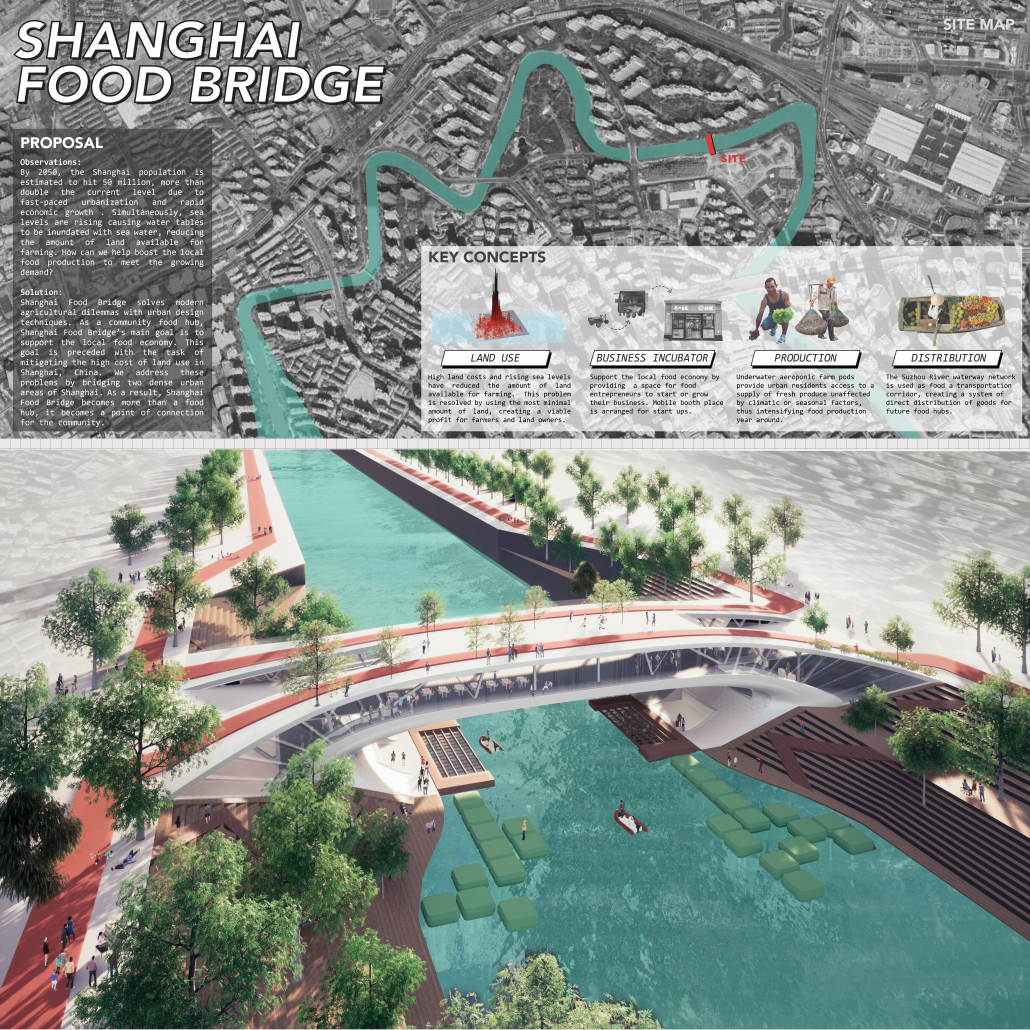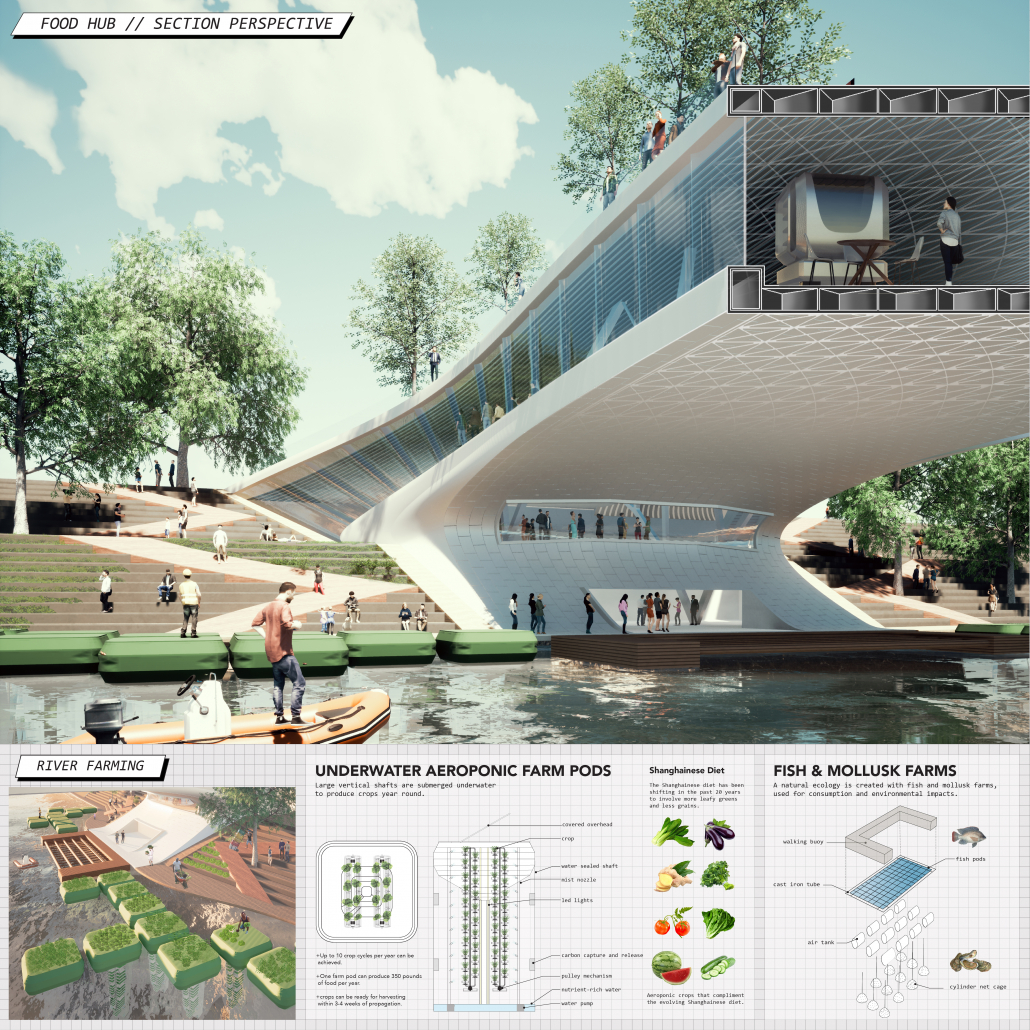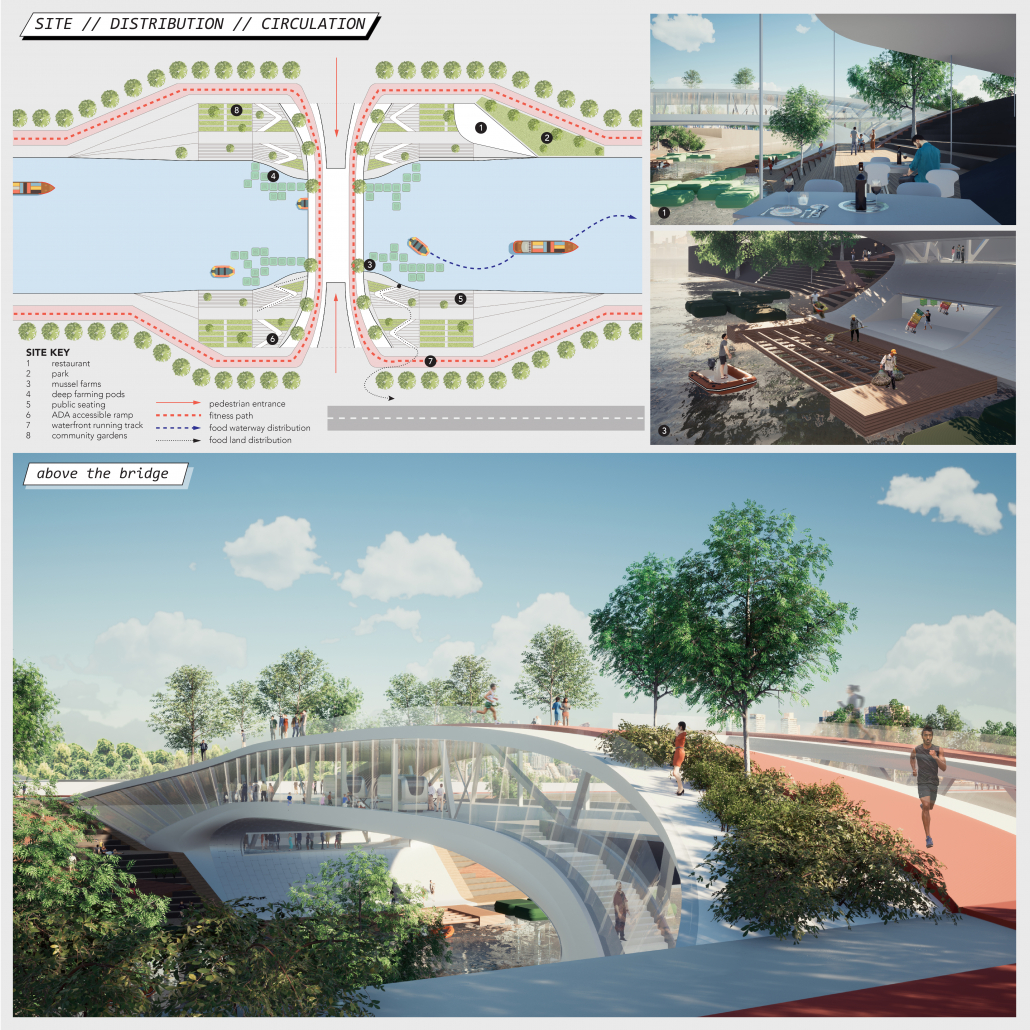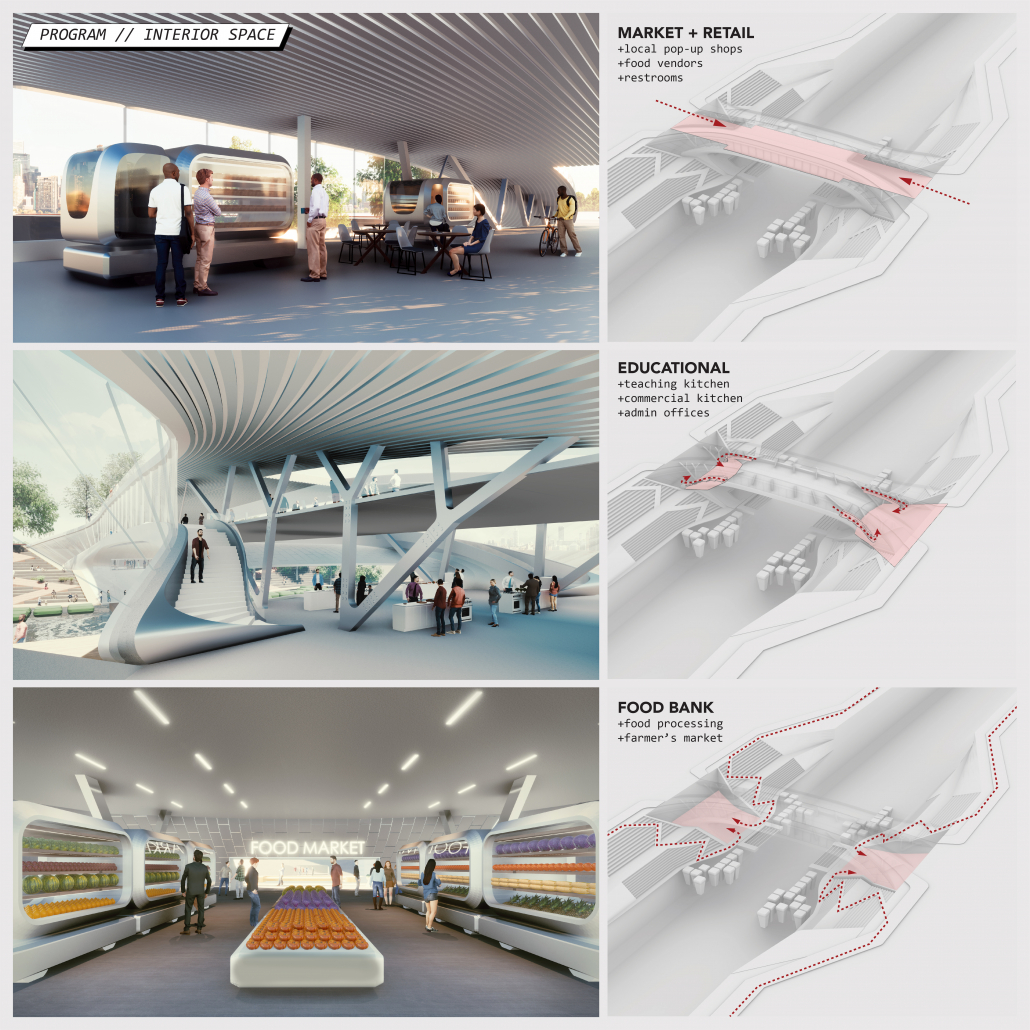2020 Steel Competition
Honorable Mention: Shanghai Food Bridge
Yifan Zhou, Connie Kwan, and Sydney Foster
Shanghai Food Bridge
Students: Yifan Zhou, Connie Kwan, and Sydney Foster
Faculty: Clark Llewellyn
School: University of Hawai’i at Manoa
Juror Comments
Project Description
Shanghai Food Bridge solves modern agricultural dilemmas with urban design techniques. As a community food hub, Shanghai Food Bridge’s main goal is to support the local food economy. This goal is preceded with the task of mitigating the high cost of land use in Shanghai, China. We address these problems by bridging two dense urban areas of Shanghai. As a result, Shanghai Food Bridge becomes more than a food hub, it becomes a point of connection for the community.
High land costs are a direct result of rapid urbanization. Shanghai Food Bridge solves this problem by using the most minimal amount of land, creating a viable profit margin for farmers and landowners.
Shanghai Food Bridge provides programs for business incubation. Farmers have affordable access to farm pod parcels, business credit and market spaces. Co-op markets on site create a chain of local entrepreneurship, from informal to formal business operations. This helps train and develop skills for entrepreneurs in farm and business planning. This also promotes agricultural development within the urban context.
Underwater aeroponic farm pods promote on site food production, giving urban residents access to fresh, local produce. Placing vertical farms underwater regulates temperature, increasing production year-round. Compared to the traditional agricultural process, Shanghai Food Bridge achieves higher productivity on a smaller land area while also reducing the amount of fossil fuels needed for farming equipment and distribution.
Shanghai Food Bridge uses the Suzhou River as a network, creating a distribution of goods for future Food Bridges. This network system helps small farms gain access to a larger volume of marketplaces by coordinating a local supply chain. With the development of Shanghai Food Bridge, a network of food hubs is formed, bridging urban communities with a healthy lifestyle. This bridge becomes a permanent symbol for the interlacing of a community.
As a community food hub, Shanghai Food Bridge’s main goal is to support the local food economy. This is achieved with a circular economy system in which we are able to demonstrate, distribute, connect, and produce on site.
Demonstrations begin at a macro level. Food production materializes our underwater farm pods. On an intimate level, seminars for cooking, food preservation and waste reduction are held in the Educational Kitchen and Information Center. Programs like this help connect the community. Distribution of goods starts with a Co-Op Farmers Market which helps small farms gain access to a larger volume market by coordinating a local supply chain. As a physical connector, the programs in Shanghai Food Bridge strengthen this food hub to develop into a sustainable food network.

 Study Architecture
Study Architecture  ProPEL
ProPEL 




